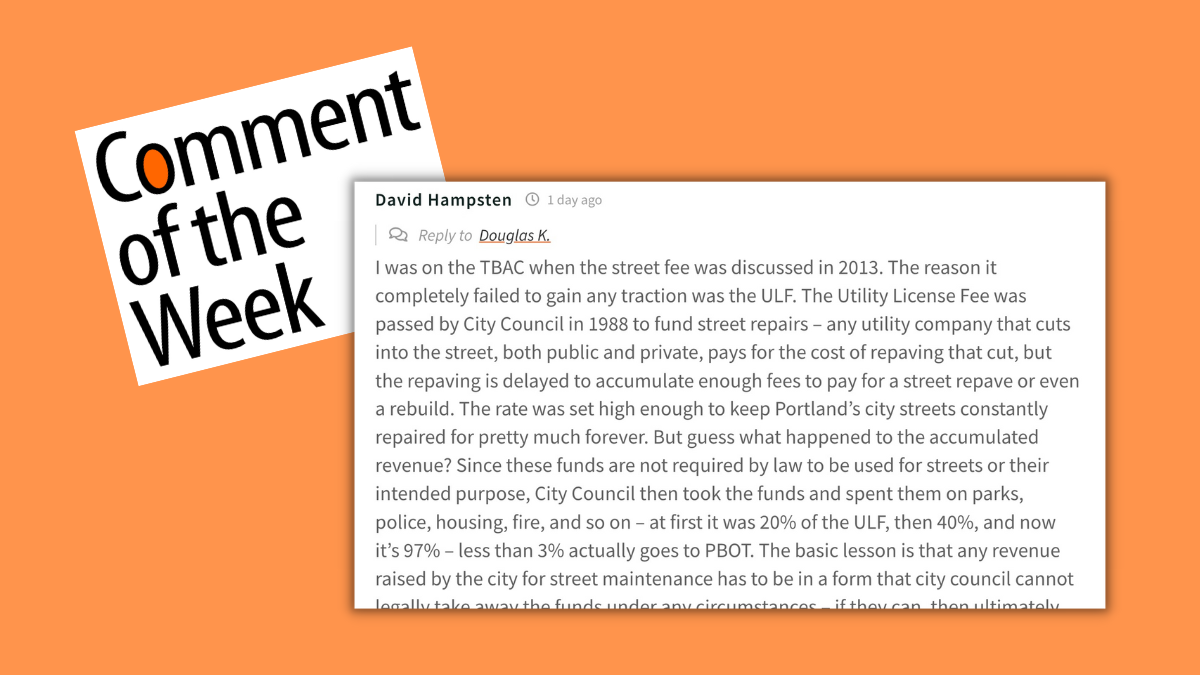Welcome to the Comment of the Week, where we highlight good comments in order to inspire more of them. You can help us choose our next one by replying with “comment of the week” to any comment you think deserves recognition. Please note: These selections are not endorsements.
I like comments which make me work and David Hampsten delivered again. This time with historical insight on Taylor’s recent transportation funding woes post.
David served on the Transportation Budget Advisory Committee (TBAC) over a decade ago (now called the Bureau Budget Advisory Committee) and he has a deep knowledge of Portland Bureau of Transportation (PBOT) funding difficulties. Nevertheless, I decided to minimally fact check his comment and ended up spending a wonderful couple of hours reading of decades-old policy debates and looming transportation budget crises.
Unfortunately, this 2011 warning from the TBAC to the Mayor and City Council still holds: “The challenges facing PBOT in the development of a multi-modal transportation system in the City are significant. The resources available are extremely limited.”
Here’s what David had to say about the hapless history of transportation funding in Portland:
I was on the TBAC [Transportation Budget Advisory Committee] when the street fee was discussed in 2013. The reason it completely failed to gain any traction was the Utility License Fee. The ULF was passed by City Council in 1988 to fund street repairs – any utility company that cuts into the street, both public and private, pays for the cost of repaving that cut, but the repaving is delayed to accumulate enough fees to pay for a street repave or even a rebuild. The rate was set high enough to keep Portland’s city streets constantly repaired for pretty much forever.
But guess what happened to the accumulated revenue? Since these funds are not required by law to be used for streets or their intended purpose, City Council then took the funds and spent them on parks, police, housing, fire, and so on – at first it was 20% of the ULF, then 40%, and now it’s 97% – less than 3% actually goes to PBOT.
The basic lesson is that any revenue raised by the city for street maintenance has to be in a form that city council cannot legally take away the funds under any circumstances – if they can, then ultimately they will do so, usually sooner rather than later – and so raising the gas tax was the only reasonable and viable alternative given council’s long-term misbehavior.
Interestingly, Washington County currently is finding itself in a similar situation to what David describes above, although through a different funding mechanism. Still, his warning and advice applies.
Thank you David Hampsten. You can find David’s comment and the rest of the discussion under the original post.


